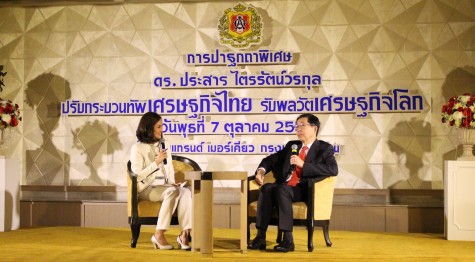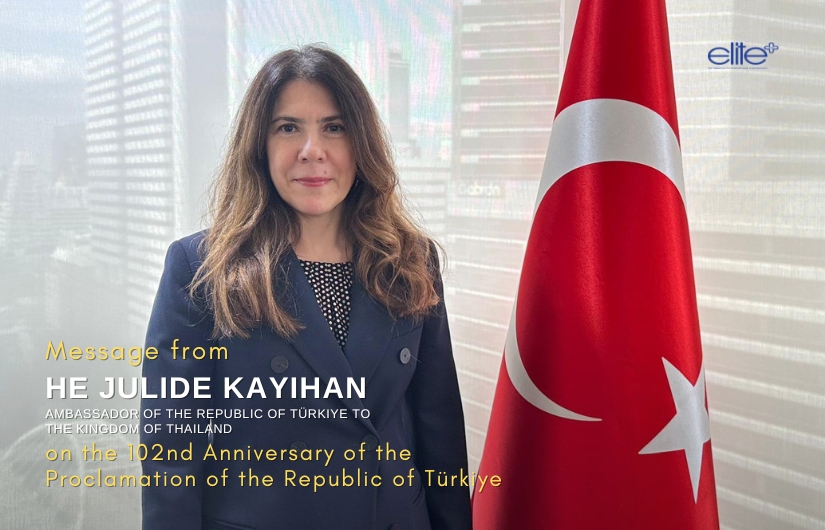On October 7th, 2015 at Grand Mercure Fortune Hotel, Assumption Association hosted an alumni event and invited PhD Prasarn Trairatvorakul, Bank of Thailand’s former governor to give his speech under the topic ‘Adjusting Thai Economics Paradigm and Global Economics Dynamic’ reviewing his perspective towards world economy and suggested tactics for players in the financial field.
‘The current economic situation violently fluctuates and complicated. It involves with both cyclical and structural factors. When we try to solve a problem, it usually ends up with another problem waiting for us to figure out. The economic differences among each country are wide. While the US economy is likely to recover and return to be stable, the economy in several countries like Japan, the Eurozone as well as China is declining. Due to the globalisation, Thailand’s economy is easily affected by variety of factors. And when the global market is not on the common base, it makes investors worried. Taking care of the economy domestically is not enough, Thailand’s economic scope is broaden into the global scale. An economic recession is similar to an epidemic. When it occurs in one country, it will spread throughout the world rapidly.
‘If this is a soccer match, I see Thailand’s score as 0:0. We’re not being beaten, however, I can’t tell whether we can score any goal. Even though, our financial situation is quite stable, the international trading is slowing down since most of the countries considerably depend less on import. They are turning to count on domestic supply chain. At the same time, Thai labours and manufacturing base also could not meet the world criteria. The minimum wage of labours is higher than the neighbours while our manufacturing quality does not satisfy customers’ requirement.’
PhD Prasarn likened private sectors to the forward position in a football team who is needed to adapt new tactics to tackle against the latest market demand. Since in the past, Thai private sectors has mainly based on production industry and the strategy we have used to compete with others is solely focusing on pricing. ‘The business sectors need to be trained hard. They are required to observe the upcoming trends, adopt up-to-date technologies and figure out how they could add values to the products as the forwards who have to apply modern offensive tactics as well as defensive plan to save the ball from the opponent. Thailand’s marketing position has to be shifted from a manufacturer to the product developer and market researcher who receive higher business value.’
He also added that the forwards, nevertheless, could not lack of support from midfielders and centre-back. The government is compared to as the midfielders and the bank is regarded as the centre-back of the team. These supporters especially the government sector are also crucial factors leading the team to the victory. ‘The private sector could not be short of government support who creates unity among the economic team. But the midfielders’ strategies have to be switched from being directive previously to become more facilitative. Previously, the government was get used to launch the policy to direct the business sectors to follow. Nowadays, this has to be changed. It is essential for the government policies to be designed from the private sectors’ interest. They have to create a pleasant atmosphere encouraging private sectors to invest.’
As a midfielder who dribs the ball and passes it off to a forward. The government who is possessing most of the national resources have to make use of them efficiently allowing the private sectors to perform the highest ability to compete in the market. When the ball is forwarded to the striker in a right direction, our prolific scorer would definitely shoot the goal before the final whistle is blown.




































































































































































































































































































































































































































































































































































































































































































































































































































































































